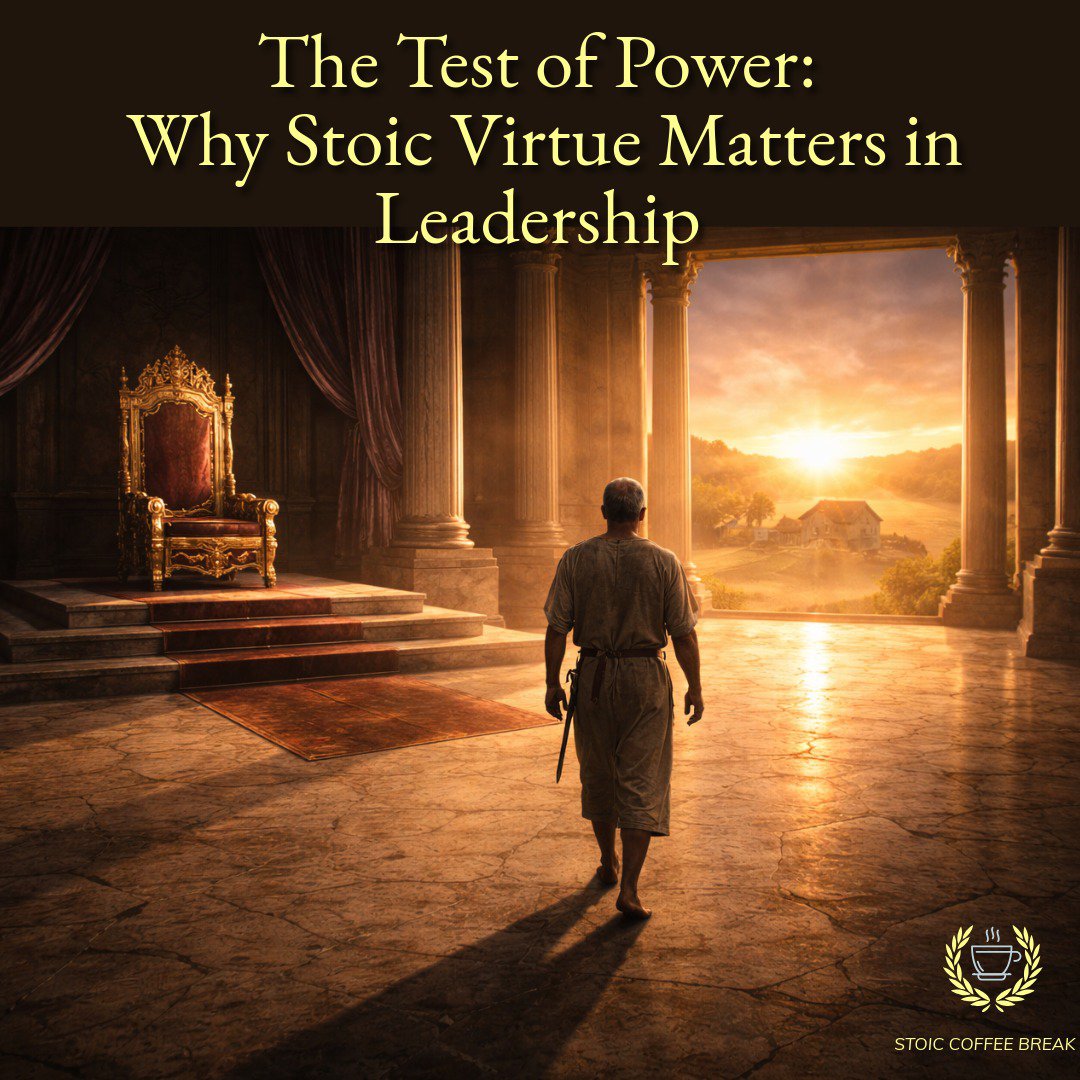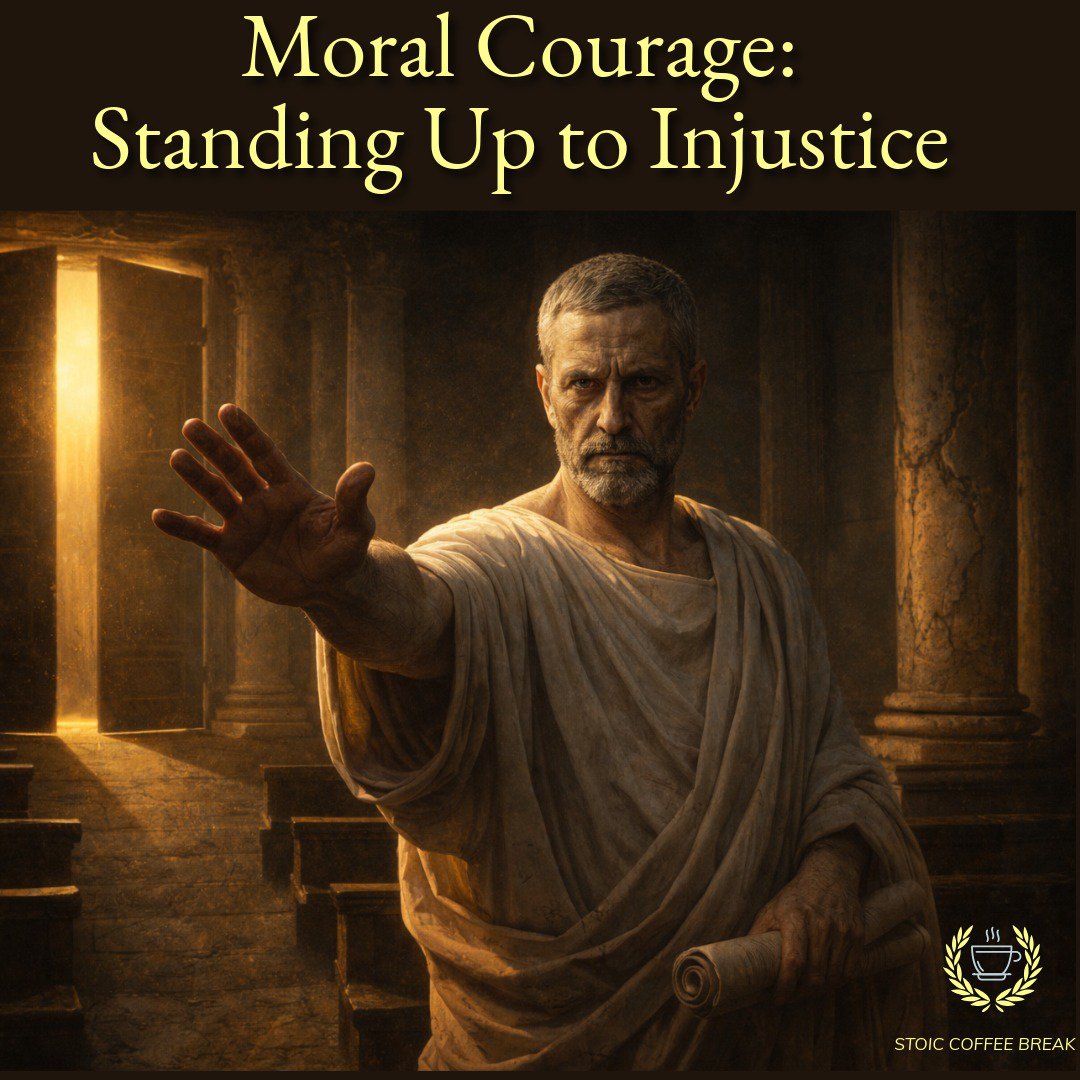
Are you confused about the different teachings of Stoicism you find on the internet? Would the Stoics advocate for the “hyper-masculine” culture that uses Stoicism to support some approaches to stress, dating, and how to treat others? Today I want to talk about how Stoicism can be misused, and clear up some of the misconceptions of Stoicism been propagated by what some have called “Broicism”.
“The lamp of wisdom shines brightest when lit by the flame of self-awareness.”
― Musonius Rufus
About a month ago, I saw an interesting video on YouTube titled, “How Stoicism Became The World's Greatest Scam”. To be honest, I was a little reluctant to watch, but as I’m always interested in expending my views and finding areas in my life where my perspective could be wrong, I watched it. Rather than being take down of Stoicism, it was discussing how many online influencers seemed to be appropriating and twisting some of the core tenets of Stoicism. I appreciated the balance of explaining what Stoicism actually teaches, and how it’s being used in ways that don’t align with the true meaning of Stoicism.
The one caveat is that they characterized Ryan Holiday in a way that I disagreed with. I think that Ryan has done some great work in bringing Stoicism and its teaching to a wide audience in a way that is very much inline with the what the Stoics actually taught. I’ve read a good number of his books, and when I compare what he teaches with the ancient texts, I think he hits the mark.
What is Stoicism?
For those of you who are new to Stoicism or my podcast, I’m going to dive into some core teachings of Stoicism and the contrast those with some of the misconceptions being promoted. First and foremost, Stoicism teaches about the Dichotomy of Control. What this means is that you need to understand what it is you actually have control over in life. Epictetus clearly explains this, teaching:
“Some things are in our control and others not. Things in our control are opinion, pursuit, desire, aversion, and, in a word, whatever are our own actions. Things not in our control are body, property, reputation, command, and, in one word, whatever are not our actions.”
In other words, you have control over the way you think, the things you pursue and avoid, and really anything where you have direct control, meaning any situation where you have a choice. Everything else is outside of your control, including your own body, reputation, even the stuff you own. These are considered externals or indifferents—meaning that they were neither good nor bad, but things that are there help us become better people.
The reason why this was so important to the Stoics, is because they wanted people to focus on the most important things that were actually under your control, namely, understanding that you have control of your own thinking and actions, regardless of external circumstances.
The next important teaching from the Stoics are the four cardinal virtues: wisdom, courage, justice (how you treat others), and temperance (meaning discipline). They called these “the sole good”, meaning that if you practice these four virtues in your life, then you can learn to be happy in any situation. By developing and strengthening these virtues, your external circumstances have less power over your internal equanimity.
The result of developing these virtues, is that you become more resilient, because you recognize that it’s your thinking around things that cause much of our emotional turmoil. You’re able to make better judgements because you filter everything through the four virtues. When external circumstances are challenging, Epictetus reminds us:
"What really frightens and dismays us is not external events themselves, but the way in which we think about them. It is not things that disturb us, but our interpretation of their significance.”
Simply put, your thoughts and judgments about things are what cause the emotions you have about those things.
The last aspect of Stoicism I want to bring up is that the Stoics taught that we are all part of the same human family. They called this cosmopolitanism, meaning that we are all an aspect of cosmos, part of the same human family, and therefore we need to treat everyone with kindness and compassion, even when they don’t treat us the way we think they should.
The Problems with Broicism
Broicism, as it’s been referred to, is a modern and shallow interpretation of Stoicism. It focuses on suppressing emotions to appear tough when dealing with challenges. Feeling fear or anxiety, or showing vulnerability is considered a sign of weakness. It discards many the core aspects of Stoicism such as treating others well, into a hyper-masculine framework.
This conflation of emotional suppression with strength is exactly the opposite of what the Stoics taught. They taught that you should learn to manage your emotions so that rather than reacting emotionally or impulsively, that you were able to take the time to objectively examine a situation, and choose a response which is inline with Stoic virtues.
I’ve often seen how Stoic quotes on resilience and internal strength are cherry-picked to justify aggressive behavior or a “lone-wolf”/“alpha-male” mindset, ignoring the larger context of community, compassion, and the interconnected of humankind that the Stoics included as a core part of their philosophy. Broicism takes the concepts of developing inner-strength and humility, and twists them to rationalize selfishness, the pursuit of material success, and the denigration of others, especially women.
Broicism also lacks the self-reflection that is a huge part of Stoicism. The Stoics taught that negative emotions were usually caused by misjudgments and errors in your thinking. In order to manage your emotions, you have to become aware of your own thinking and that means that you have to practice humility and self-awareness.
Marcus Aurelius’ Meditations is all about his struggle with his emotions, how to govern with compassion and wisdom while constantly working towards the greater good over personal gain, and how to treat others well in all situations. He writes:
“Begin each day by telling yourself: Today I shall be meeting with interference, ingratitude, insolence, disloyalty, ill-will, and selfishness – all of them due to the offenders’ ignorance of what is good or evil.”
Think about that. Here’s the emperor of Rome, the most powerful man in the world, reminding himself to be kind to those who are selfish and insolent because they don’t know any better. Rather than using his position to punish them, he worked hard to view things with compassion and objectivity, and to teach and instruct others in virtue whenever possible.
Why Does This Matter?
The reason why this matters to me is that I know a lot of people are feeling the stresses of modern life. Things feel more chaotic in the world than ever and many people are looking for ways to handle the challenges in their lives. As I see people like Andrew Tate and others feed on this anxiety, fear, and loneliness, they’re spreading a very toxic form of Stoicism that is often completely the opposite of Stoic principles and teachings.
For me, Stoicism has been extremely helpful in developing a mindset that is more relaxed, resilient, and better to manage my emotions in a healthy way. It’s unfortunate to see something that has been such a positive influence on my life be so mischaracterized.
These misconceptions and mischaracterizations can actually cause more harm. For example, by suppressing emotions and ignoring fear, anxiety, or sadness can actually lead to depression, and make those emotions even stronger. Stoic rationality helps you to face up to those emotions and handle them in a healthy way, by understanding that your thinking is what creates the emotions you feel about a situation. This helps you to look at emotions more calmly and objectively, allowing you to manage your emotions, rather than being overwhelmed by them.
I can understand why this version of Stoicism might be attractive to some. It feels easier because you don’t have to put in the hard work that living a truly Stoic life requires. Being mindful, practicing self-awareness and discipline, and even treating those you don’t like with kindness is challenging. They also dangle their material success as proof that their way of thinking is right. But just because someone has a lot of things doesn’t mean they’re correct or even that they’re truly happy.
So What Does a True Stoic Look Like?
A true Stoic is a person that is in command of their emotions. They are able to choose their response to external circumstances and situations, rather than simply reacting. They are kind, patient, and don’t get easily offended. They take criticism easily to see if there is any merit in it, and if so they are willing to change. They try to understand the viewpoint of others so they can understand why the other person holds a certain opinion. This is so they can address flaws in the other persons thinking, and possibly find errors in their own thinking. This is also known as humility.
The Stoics also talk about sticking to your principles in all situations, which gets misused as a justification for aggressive behavior, being “tough”, or pushing past burnout. But the core principles the Stoics advocated for were, as I mentioned earlier, wisdom, courage, justice, and temperance. Wisdom is about educating yourself and blending it with your lived experiences to make better choices in life. Courage means do the right thing in all situations. Justice is about treating people fairly and with kindness, even when others treat you badly. Temperance is about moderation of your desires and the discipline to live the other virtues.
Let’s look at some examples from one of the prominent Stoics.
Cato the Younger
Cato the Younger was born into a noble family, and was highly influenced by Stoicism. His Stoicism shaped his political career and personal conduct. Even as a statesman and politician, he remained frugal, unyielding, and principled, in stark contrast to the corruption and decadence of many Roman elites. He eschewed the benefits of his status, dressing simply and preferred to travel without an entourage that was typical for one of his position.
He was a strong advocate of justice, and sought to further the common good over self-enrichment. He championed a fair and free society and stood up to the tyranny of Julius Caesar, preferring suicide rather than to be used as a tool for Caesar’s political aspirations.Cato was well respected, even by his enemies because of his unwavering integrity. He was so disinterested in personal glory, that he once said:
“I would rather people ask why I have no statue than why I have one.”
Marcus Aurelius
Marcus Aurelius was the Emperor of Rome. That made him the most powerful person in the world, as well as one of the wealthiest. But rather than using his position to enrich himself or to live an extravagant lifestyle, he viewed his station as one of service, always seeking to further the common good. When Rome was hit with a plague carried from soldiers returning from war, he sold many of his own possessions to aid those who were suffering.
As Emperor, he heard many legal cases, and did his best to be fair, reasonable, and compassionate in his rulings. When we read Meditations, it’s not about all his triumphs and successes, but rather his struggles within himself to overcome his shortcomings and to serve to the best of his ability, even reminding himself:
“Just that you do the right thing. The rest doesn't matter. Cold or warm. Tired or well-rested. Despised or honored. Dying…or busy with other assignments.”
Conclusion
The reason I made this episode that I wanted to step and help clarify what Stoicism actually, rather than distorted versions that I see online. Stoicism is a profound and practical philosophy that helps you to develop self control and mastery over your emotions, rather than suppressing or ignoring your emotions. It’s about being humble, compassionate, and of service to others, not domination of those that are weaker or less fortunate. It’s about standing up for and living the principles of wisdom, courage, justice, and developing temperance and discipline in yourself. We should follow the words of Marcus Aurelius:
“Concentrate every minute like a Roman— like a man— on doing what’s in front of you with precise and genuine seriousness, tenderly, willingly, with justice.”
My book Stoicism 101 is available for pre-order! Order here!
Find out more at https://stoic.coffee
Watch episodes on YouTube!
Find me on linkedIn, instagram, twitter, or threads.
Thanks again for listening!


